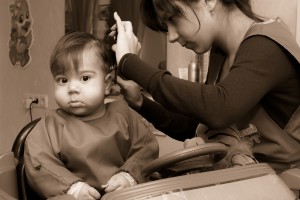
How many parents have heard: “He’s autistic? But he acts so normal!” Many respond this way to hearing a parent reveal a diagnosis because they think it would be considered a compliment. This statement emphasizes how someone looks a certain way and doesn’t address or acknowledge the state or experience of being autistic.
As psychologists learn more about the symptoms of autism and how they manifest themselves, the public, in turn has better recognized those affected, and more people are talking about it. Despite this increased “awareness” of what autism looks like, many people still fail to understand how the full range of symptoms affects how autistic people experience the world.
A lack of understanding can lead to unintentional offensive responses when first hearing about someone’s autism diagnosis. Much has been written by parents of autistic children trying to raise awareness of what these inappropriate responses are and how they make the parents feel. I’d like to approach this topic from a slightly different angle and explore how these inappropriate responses make the autistic child or adult feel and how we can best discuss autism with and among autistics.
…
Read More









